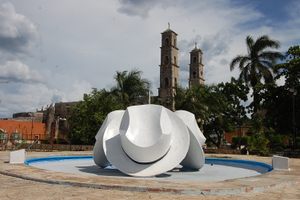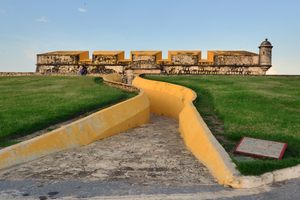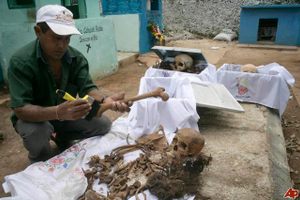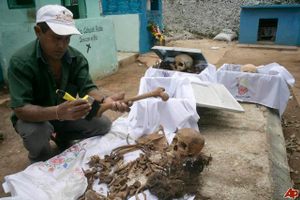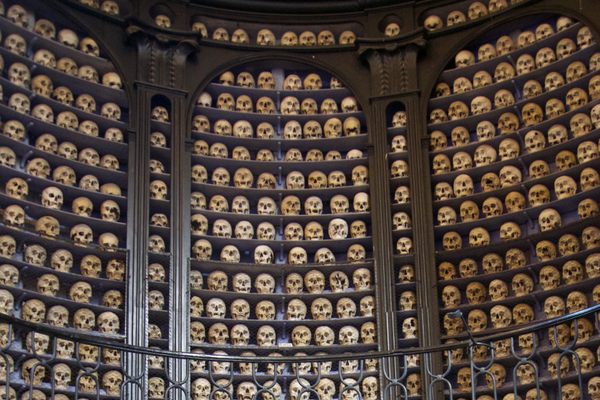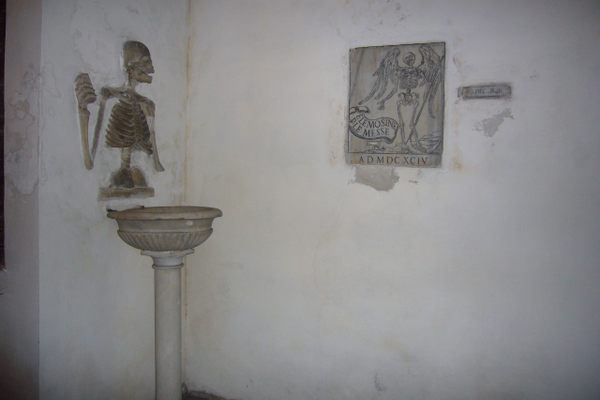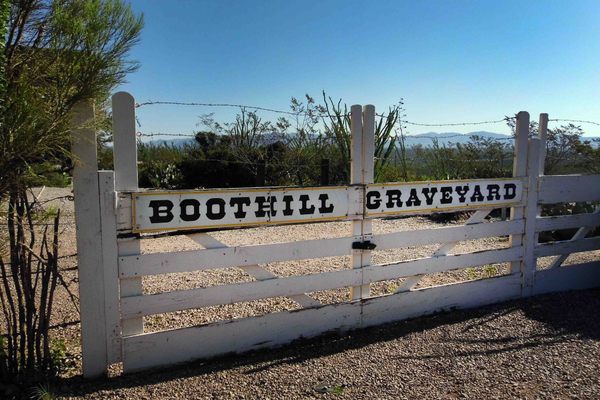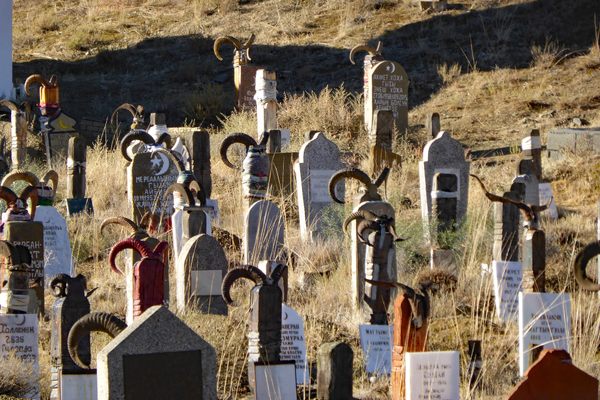About
Many are familiar with the now well-known Mexican Day of the Dead Celebration held on November 2 each year. A celebration of one's ancestors, it has a distinctly fun-meets-macabre atmosphere with sugar and bread skulls for eating, make-up that resembles skulls, and a day spent in the cemetery telling stories of relatives and friends.
However, in Pomuch Cemetery in the small Mayan town of Pomuch near Campeche, Mexico, the connection with the dead goes even farther. Each year on the Day of the Dead, family members visit the cemetery and ritually clean the bones of their loved ones and place them on display among flowers and new embroidered cloth for veneration.
Those who die in Pomuch, be they a newborn or an 80-year-old, are all buried for three years, and then are dug up on the Day of the Dead (this can be a difficult experience for the family members) to have their bones cleaned and transferred to a wooden crate placed on permanent display in the cemetery. This allows their bodies to have time to decompose and for their bones to dry out. From each year there on out, family members visit every November 1 (a day specifically for dead children known as Day of the Innocents) and November 2 and clean the bones of their fathers, brothers, sisters, mothers, aunts, uncles, cousins, and other relatives.
The custom may date back directly to Mayan practices in which skulls of ancestors were often kept and venerated. Curiously as technology has progressed and entered into our bodies themselves, items like steel hip joints have entered into the remains and must be cleaned differently from the bones.
The ritual — which is said to help deal with the pain of death and keep the family together — is also tied to a belief that a poorly taken care of relative can "become angry and wander lost through the streets." There is some concern that as the youth of Pomuch become more modernized they will abandon the tradition of cleaning the dead. In the words of one local man speaking of his children "I can't make them do it, but if they don't, I don't know where I'm going to end up."
Related Tags
Know Before You Go
About an hour to the Northeast of Campeche
Yucatan Family Adventure: Meteors, Pyramids & Maya Legends
Explore Maya temples and learn about the asteroid that wiped out the dinosaurs.
Book NowCommunity Contributors
Published
March 25, 2010









